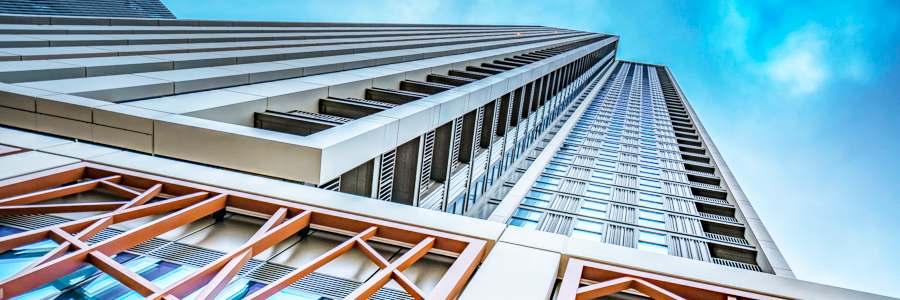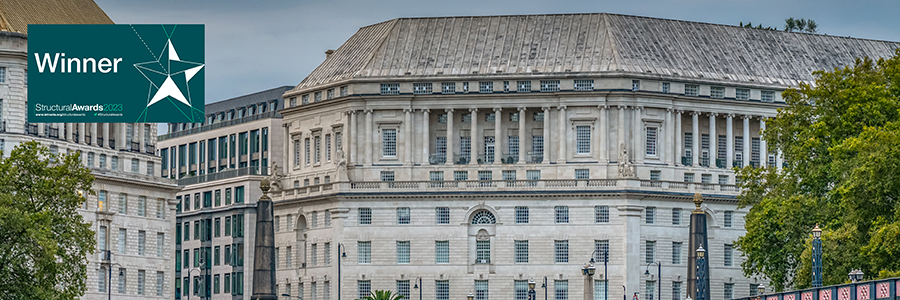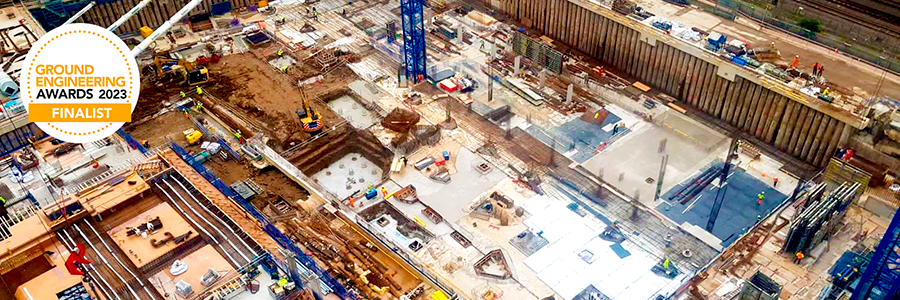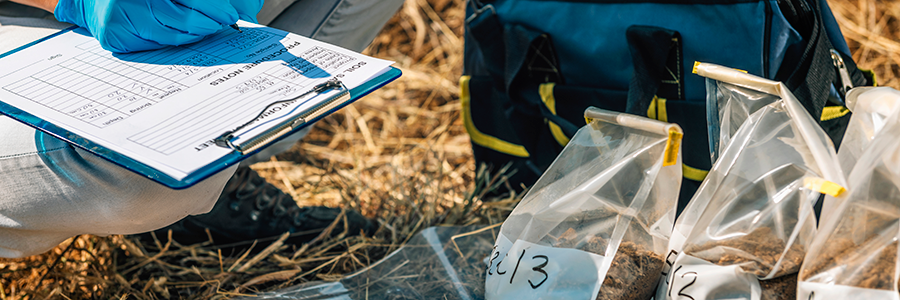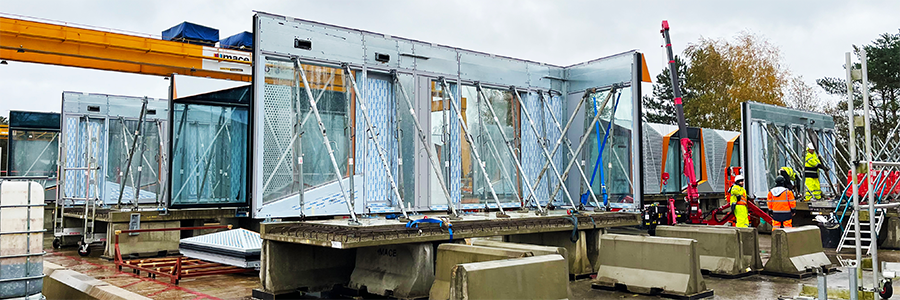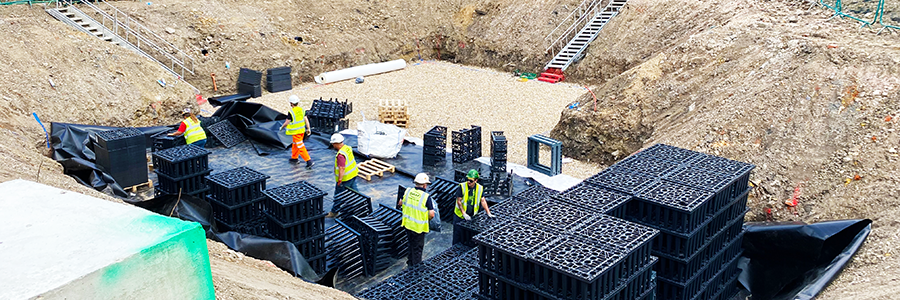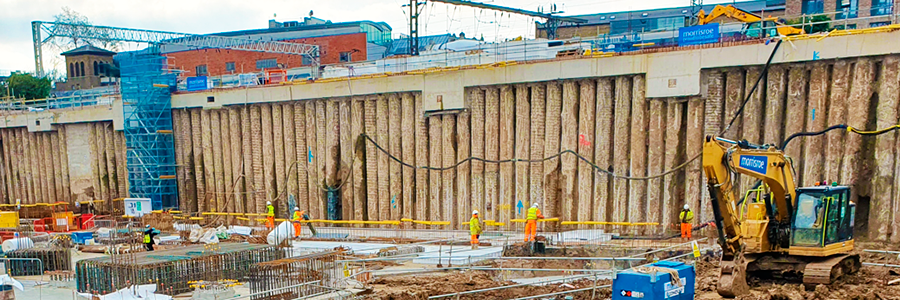Committed to fostering continuous growth and development within our industry, our Continuing Professional Development programme is designed to keep you at the forefront of structural, civil and geotechnical engineering advancements, ensuring you remain competitive in a rapidly evolving landscape.
Walsh seminars, workshops, and training sessions are tailored for busy professionals. Our experts deliver the latest industry insights, cutting-edge techniques, and essential regulatory updates—enhancing your knowledge quickly and efficiently.
01. Tall Building Design: Standing out from the Crowd
How to ensure new high-rise living stock is sustainable, functional & adaptive to climate change
With a new focus on high-rise residential living, the construction of tall buildings is becoming increasingly common across the UK. Often more slender than commercial buildings, understanding how to design high-rise residential structures that are efficient, cost-effective and sustainable is key to their success.
Key learning outcomes:
- An understanding of the design approach for maximum efficiency of structural frames
- Knowledge of best practices in providing a cost-effective and low carbon solution for tall towers
- An understanding of design principles from stability analysis and damping systems, to foundation solutions
- How to select materials effectively and incorporate future innovation
Lead presenter: Eoin Kelly
02. Reclaim, Repurpose, Renew: Reuse Trends
How to effectively reuse, retain and incorporate existing structures into new developments
Key learning outcomes:
- Knowledge of best practices to understand the site’s history and the existing buildings
- How to work with the structure and not force new build strategies or approaches
- An understanding of the criteria required to reuse & repurpose structures
- An understanding of the key considerations when proposing to change the use of specific building types
03. De-risking Sites & Dealing with Abnormals
How to ensure that site constraints do not constrain your development
With ‘greenfield’ development being rare, modern construction projects invariably have to deal with third-party assets, which constrain the site and significantly increase complexities and costs. However, with a pragmatic approach focused on reducing risk, the impact can be mitigated to unlock the site’s full potential.
Key learning outcomes:
- Knowledge sources and how to identify key constraints
- Effective assessment of the impact on the third-party assets
- How to manage third parties and limit the programme impact of approval processes
- Effective solutions to limit the impact of constraints
Lead presenter: Andy Stanford
04. Digging into the Known, not the Unknown
How to successfully investigate & manage ground conditions
Every site has different and highly varied geotechnical and geoenvironmental conditions. Obtaining a greater understanding at an early stage of any detailed conditions can significantly reduce risk and avoid costly delays during the groundworks phase. This seminar will show how to get a better understanding of ground conditions and effectively manage these.
Key learning outcomes:
- An understanding of common planning requirements relating to contamination and remediation
- An understanding of the Basement Impact Assessment process
- Common problems and how they can be resolved
Lead presenter: Richard Ball
05. MMC: Thinking Outside the Box
How to harness innovation beyond modular construction
Modern Methods of Construction (MMC) are often associated solely with modular construction, but they encompass a wide array of innovative techniques. This workshop will explore the spectrum of MMC and how to use these methods to achieve superior results in your projects.
Key learning outcomes:
- The pros & cons of MMC versus traditional onsite construction methods
- Current trends and combining different techniques for optimal results
- Harnessing technology-led design within the design process
- Innovative and sustainable outcomes that promote environmental responsibility
Lead presenters: Eoin Kelly / Sarah Fu / Ben Ransom
06. Managing Flood Risk: Making Space for Water
How to engineer successful SuDS & manage flood risk
Sustainable drainage systems have become an essential part of development, required to reduce the impact on local sewers, waters and improve urban greening. With increasingly constrained urban development sites managing flood risk and incorporating SuDS needs to be even more inventive.
Key learning outcomes:
- An understanding of the ULK legislative and planning framework with regards to flood risk
- How to effectively incorporate SuDS within the public realm and building envelope
- How to design robust systems that adapt to changing conditions
- An understanding of blue roofs and common misconceptions with regard to their use
Lead presenter: Jacqui Kantor
07. Sustainability in Construction: Ensuring Intelligent Low-Carbon Solutions
How to achieve net zero targets through collaborative design & execution
As the construction industry faces increasing pressure to reduce its carbon footprint, achieving net zero targets by 2040 requires a collaborative approach to designing and executing projects that prioritises sustainability without compromising on performance.
Key learning outcomes:
- Discover the importance of structural reuse & material recycling
- Lean design principles and tailoring material specification to achieve lower carbon outcomes
- Understand the importance of early contractor & supply chain engagement
- Insights into carbon tracking throughout project delivery to measure and manage environmental impact
Lead presenters: Dr Marianne Brett / Alex Mead
08. Integrated Temporary Works: Maximising Cost & Carbon Benefits
How temporary works can provide financial savings & reduce environmental footprint
Key learning outcomes:
- Discover the importance of early coordination with the client and design team for seamless integration
- Strategies for sequencing to minimise disruption
- Real-world examples that demonstrate how to produce carbon savings
- How to find a balance between cost & efficiency in project planning and execution
Lead presenters: Maddie Groves / Richard Ball
